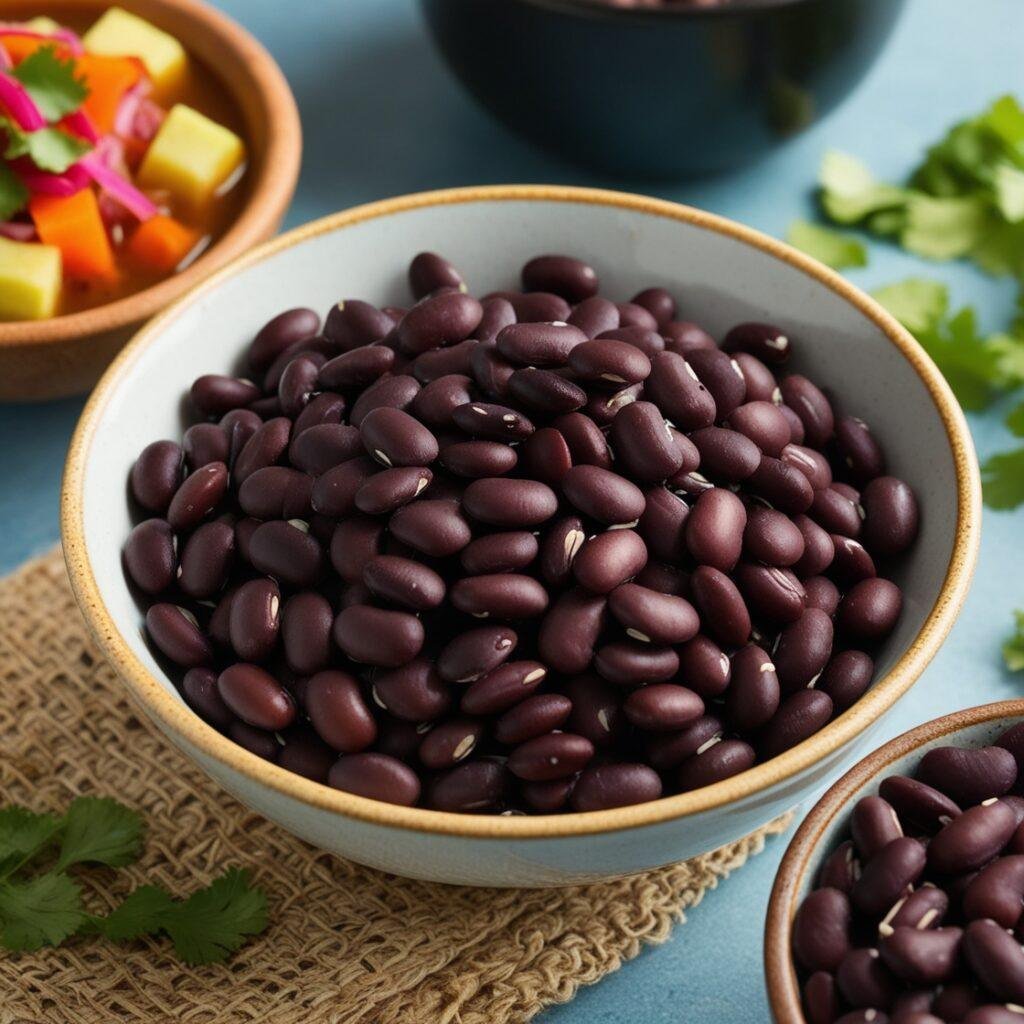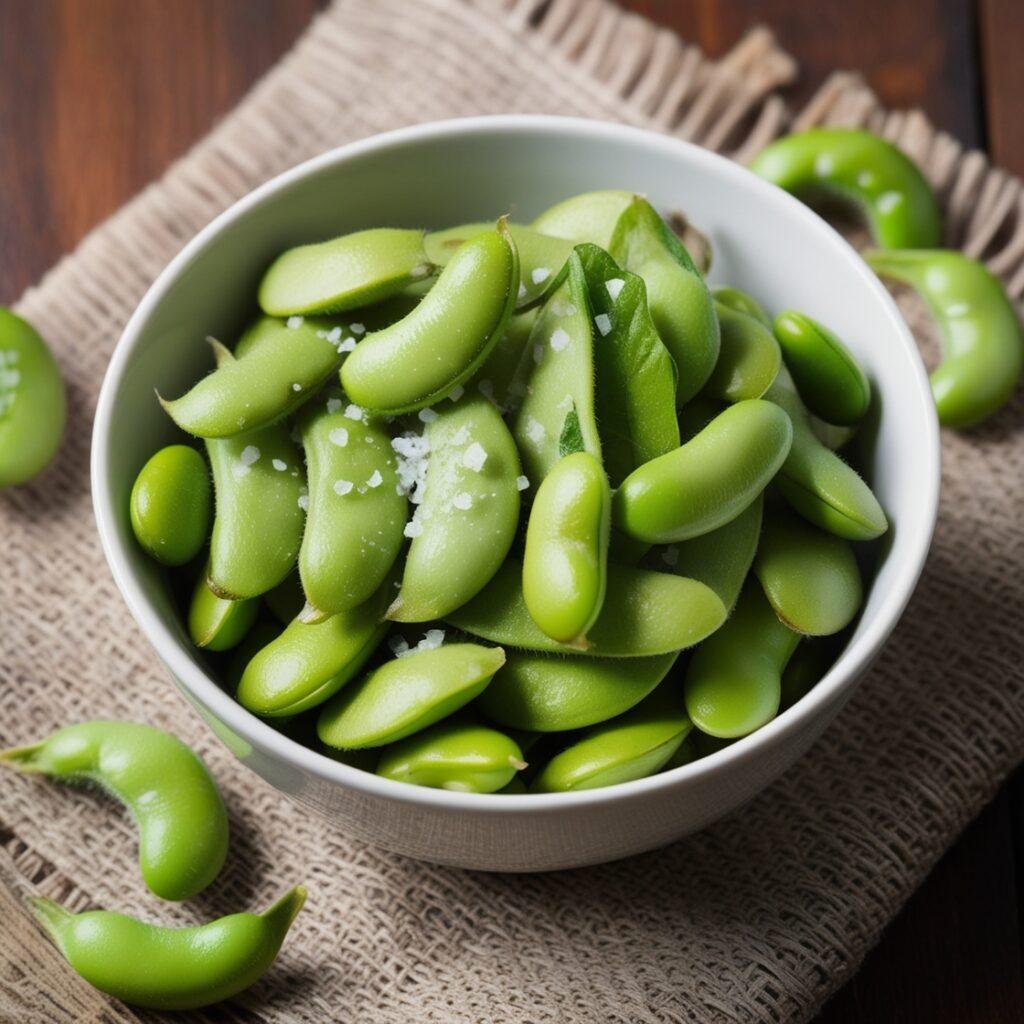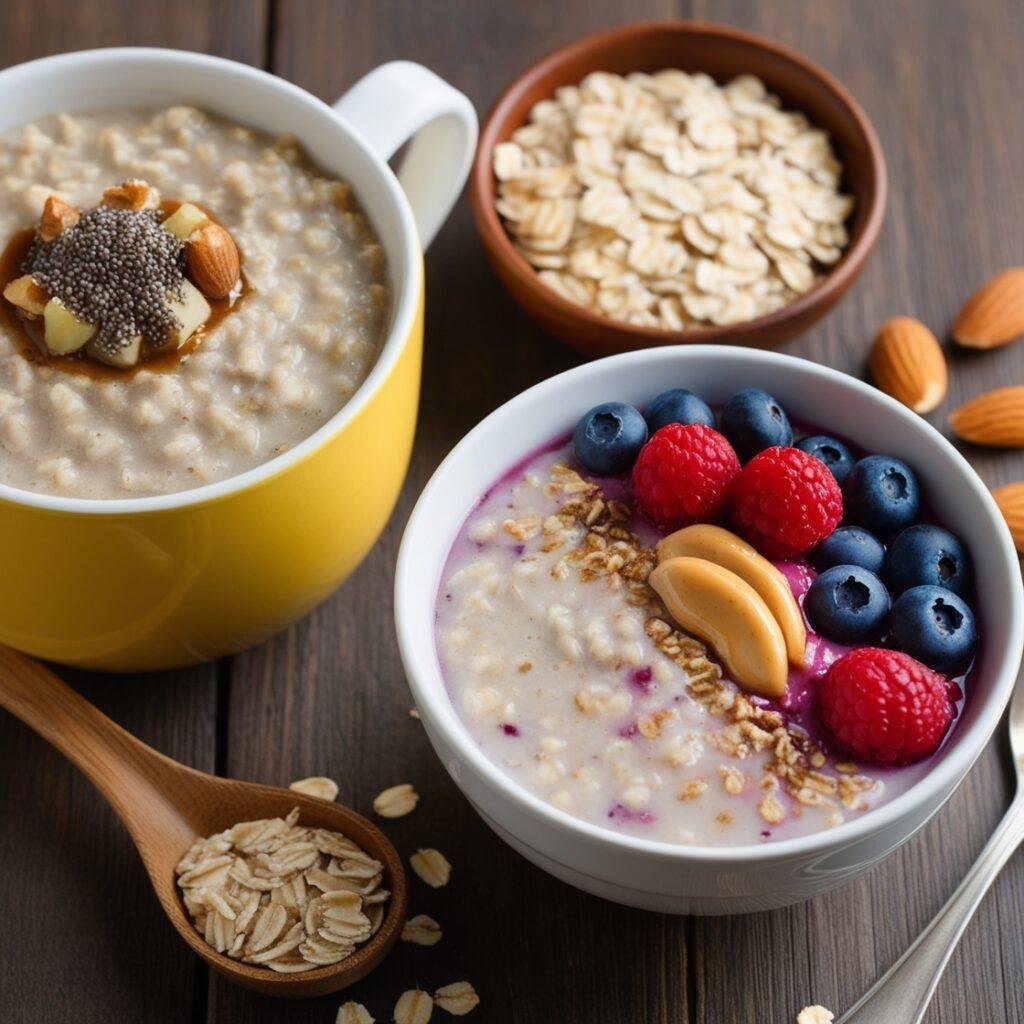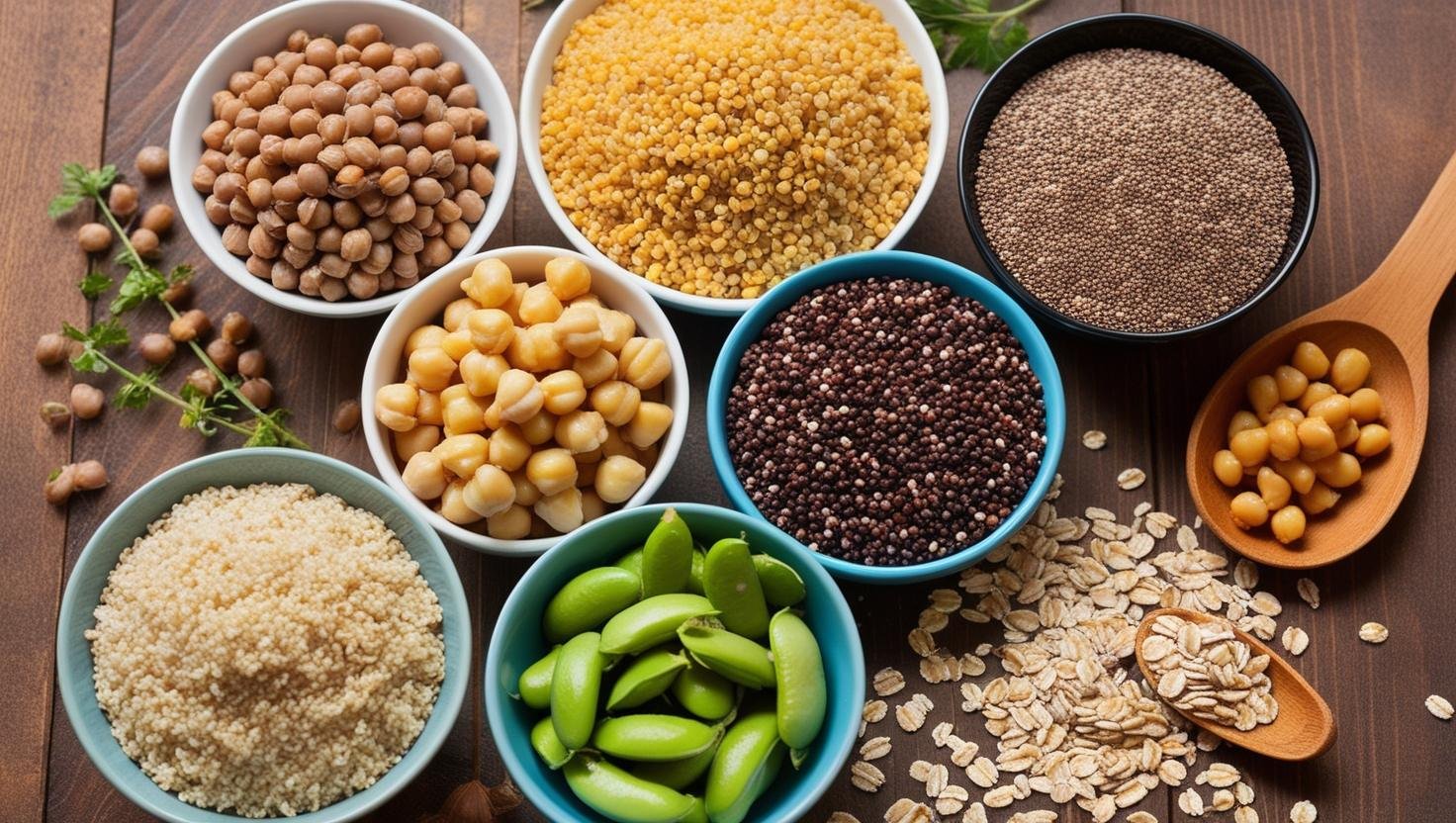7 Proven High-Fiber High-Protein Foods to Boost Health
Table of Contents
7 Proven High-Fiber High-Protein Foods to Boost Health
When it comes to improving your health, combining high-fiber high-protein foods is a powerful way to support your body. Whether you’re looking to improve digestion, build muscle, or maintain a healthy weight, these nutrient-rich foods offer numerous benefits. Let’s dive into the seven best high-fiber high-protein foods you should include in your diet.
| Food | Serving Size | Fiber (g) | Protein (g) | Recommended Ages |
|---|---|---|---|---|
| Lentils | 1 cup (cooked) | 15 | 18 | 1 year and above |
| Chickpeas | 1 cup (cooked) | 12 | 14 | 1 year and above |
| Quinoa | 1 cup (cooked) | 5 | 8 | 2 years and above |
| Black Beans | 1 cup (cooked) | 15 | 15 | 1 year and above |
| Chia Seeds | 2 tablespoons | 10 | 5 | 2 years and above (small amounts initially) |
| Edamame | 1 cup (cooked) | 8 | 18 | 2 years and above |
| Oats | 1 cup (cooked) | 8 | 6 | 6 months and above (as porridge) |
1. Lentils: The Fiber and Protein Powerhouse
Lentils are one of the best sources of both fiber and protein, making them a top choice for those looking to enhance their diet. One cup of cooked lentils contains around 15 grams of fiber and 18 grams of protein. These tiny legumes help with weight management, improve digestion, and support heart health.
Easy Lentil Recipe:
Try a lentil soup or a warm lentil salad with roasted vegetables for a nutritious meal packed with fiber and protein.


2. Chickpeas: The Versatile Legume
Chickpeas, also known as garbanzo beans, are loaded with fiber and protein. Just one cup of cooked chickpeas contains around 12 grams of fiber and 14 grams of protein. They are excellent for promoting muscle growth and improving digestion.
Popular Chickpea Dish:
Hummuses are delicious, high-fiber high-protein foods. You can also roast chickpeas for a crunchy, savory snack.
3. Quinoa: The Complete Protein Grain
Quinoa is unique because it contains all nine essential amino acids, making it a complete protein. With around 8 grams of protein and 5 grams of fiber per cup, quinoa supports gut health while helping you build muscle.
Simple Quinoa Meal:
A quinoa salad with fresh veggies, beans, and a light dressing is a quick and healthy way to enjoy this superfood.


4. Black Beans: A Staple in Plant-Based Diets
Black beans are a fiber superstar, offering around 15 grams of fiber per cup along with 15 grams of protein. They help regulate blood sugar, support digestive health, and keep your heart healthy.
Delicious Black Bean Recipes:
Add black beans to your burrito bowls or soups for a tasty and filling meal that packs a fiber and protein punch.
5. Chia Seeds: Tiny Seeds with Big Benefits
Despite their small size, chia seeds are incredibly rich in fiber and protein. Just two tablespoons provide 10 grams of fiber and 5 grams of protein. They support weight loss, improve digestion, and promote gut health.
Chia Seed Snack Idea:
Mix chia seeds into smoothies, or make chia pudding with almond milk and a touch of honey for a delicious, healthy treat.


6. Edamame: The Protein-Rich Snack
Edamame, young soybeans, are another excellent source of fiber and protein. One cup provides about 8 grams of fiber and 18 grams of protein. It’s a perfect snack for those on plant-based diets, and it’s great for muscle recovery and overall health.
How to Enjoy Edamame:
Steam edamame and sprinkle with sea salt for a quick snack, or add them to salads and stir-fries.
7. Oats: The High-Fiber Breakfast Champion
Oats are a high-fiber high protein breakfast staple. One cup of oats provides about 8 grams of fiber and 6 grams of protein. They support digestion, help lower cholesterol, and keep you full for longer, making them ideal for weight management.
Creative Oatmeal Recipes:
Try overnight oats with chia seeds and almond butter, or make a warm bowl of oatmeal topped with fresh berries and nuts.

Benefits of High-Fiber High-Protein Foods
Including these foods in your diet offers a variety of health benefits:
- Improves Digestive Health: Fiber aids in digestion and helps prevent constipation.
- Supports Muscle Growth and Repair: Protein is essential for muscle repair and growth, especially after exercise.
- Promotes Weight Loss: These foods keep you fuller longer, helping to reduce overall calorie intake.
How to Balance Fiber and Protein in Your Meals
- Plan Balanced Meals: Combine fiber-rich vegetables, legumes, and whole grains with lean protein sources like beans, quinoa, and lentils.
- Stay Hydrated: When increasing your fiber intake, make sure to drink plenty of water to avoid digestive discomfort.
Common Myths About High-Fiber High-Protein Foods
- Myth 1: “You Can’t Get Enough Protein from Plant-Based Sources” – Many plant-based foods provide sufficient protein for a healthy diet.
- Myth 2: “High-Fiber Foods Are Bland and Tasteless” – With the right recipes, fiber-rich foods can be delicious.
- Myth 3: “Too Much Fiber is Bad for You” – While too much fiber too quickly can cause bloating, most people benefit from increasing their fiber intake.
Conclusion
Incorporating these 7 high-fiber high protein foods into your diet can greatly enhance your health, helping you achieve better digestion, muscle growth, and weight management. By including lentils, chickpeas, quinoa, and more, you’ll be on your way to a healthier, more balanced diet.
FAQs
1. How much fiber and protein should I eat daily?
Aim for 25-30 grams of fiber and about 50-75 grams of protein daily, depending on your age, weight, and activity level.
2. Can I eat too much fiber or protein?
Yes, but it’s rare. Too much fiber may cause digestive issues, and excess protein may stress the kidneys. Balance is key.
3. Are high-fiber high-protein foods good for weight loss?
Absolutely! These foods help you feel full longer, which can reduce overall calorie intake.
4. What are some other high-fiber high-protein foods?
Some great options include roasted chickpeas, Greek yogurt with chia seeds, almonds, and edamame. These snacks are easy to prepare and offer a healthy boost of both fiber and protein.
5. How do these foods help with gut health?
Fiber helps maintain regular bowel movements and feeds the beneficial bacteria in your gut, promoting overall digestive health. Protein supports tissue repair and is essential for the body’s overall functioning, including the digestive system.
